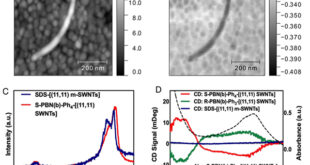Significance
Currently, global warming and climate change are among the effects of the increase in the emission of greenhouse gases into the atmosphere. This has led to stringent rules on the emission of carbon dioxide and the use of fossils fuels. Among the proposed strategies, biotransformation of carbon dioxide into useful substances has been promoted for enhancing sustainability.
For instance, the biotransformation of carbon dioxide into clean methane energy has attracted the attention of researchers owing to its effective, economical and environmentally friendly characteristics for carbon dioxide reduction and energy recovery. This will too advance various research work related to environmental conservation and development of alternative renewable energy sources.
Technically, methane is produced by methanogens in a process referred to as methanogenesis. The process mainly depends on the hydrogen and carbon dioxide as important substrates which are also the precursors in the synthesis of acetate for energy conservation by homoacetogens. However, the two pathways involved have to take place simultaneously to ensure carbon reduction and energy conservation. Recent work has shown the importance of electron donors in the biochemical carbon dioxide conversion pathways. In particular, zero-valent iron has been used as a representative of alternative electron donor to enhance the methane production during methanogenesis process as it provides a conducive environment for the growth of anaerobic microorganisms. Considering the role of the generated iron ions in the management of the global carbon cycle, the ability of zero-valent iron to simultaneous facilitate methanogenesis and acetogenesis under anaerobic conditions have been given special consideration. Unfortunately, zero-valent iron-driven carbon dioxide transformation under anaerobic conditions has not been fully explored.
To this note, East China University of Science and Technology researchers: Lei Ma, Lei Zhou, Meng Ruan, Ji-Dong Gu, and led by Professor Bo-Zhong Mu explored the performance of zero-valent iron and enrichment cultures for production of acetate and methane for the reductive transformation of carbon dioxide under the anaerobic condition at ambient temperatures. The methanogenesis and acetogenesis activities were monitored at different stages of the process to examine the performance of carbon dioxide conversion. The work is currently published in the journal, Renewable Energy.
The authors observed relatively good performance of zero-valent iron on carbon dioxide biotransformation via multiple pathways. Additionally, the addition of zero-valent iron significantly increased the simultaneous production of methane and acetate from carbon dioxide with an enrichment culture. For instance, they recorded production rate of 25.89% and -4.83% for methane and acetate respectively.
In summary, the research team at East China University of Science and Technology successfully demonstrated the role of zero-valent iron in simultaneous methanogenesis and acetogenesis of carbon dioxide. To actualize their study, they examined and confirmed the electron transfer and utilization by the methanogens in enrichment cultures Alternatively, various observations collected from scanning electron microscopy and X-ray photoelectron spectroscopy revealed that the addition of zero-valent iron favored electron donation thus accelerating the biotransformation process. Professor Bo-Zhong Mu and his team indeed provided insights on carbon dioxide conversion into useful substances that can be further utilized to generate renewable energy.
Reference
Ma, L., Zhou, L., Ruan, M.-Y, Gu, J.-D, & Mu, B.-Z (2019). Simultaneous methanogenesis and acetogenesis from the greenhouse carbon dioxide by an enrichment culture supplemented with zero-valent iron. Renewable Energy, 132, 861-870.
Go To Renewable Energy Advances in Engineering Advances in Engineering features breaking research judged by Advances in Engineering advisory team to be of key importance in the Engineering field. Papers are selected from over 10,000 published each week from most peer reviewed journals.
Advances in Engineering Advances in Engineering features breaking research judged by Advances in Engineering advisory team to be of key importance in the Engineering field. Papers are selected from over 10,000 published each week from most peer reviewed journals.

